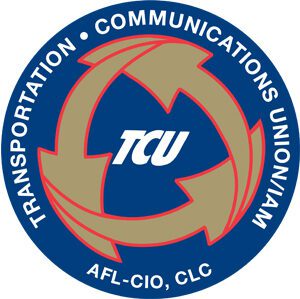TCU member Nicole Anderson has been awarded substantial damages by a Department of Labor Administrative Law Judge, who found that Amtrak retaliated against her after she filed an injury report.
In a decision that is considered the first under the 2007 amendment to the Federal Rail Safety Act (FRSA), the judge awarded Anderson:
• $2,666.67 in back pay;
• $60,000 in compensatory damages;
• $100,000 in punitive damages; and
• Attorney’s fees and costs.
The FRSA prohibits a railroad carrier’s dismissal or suspension of an employee if it is “due, in whole or in part,” to the employee’s lawful, good faith notice to the carrier of a work-related personal injury or her filing a whistleblower complaint related to railroad safety. Here, the judge found that Ms. Anderson was disciplined partially in retaliation for reporting the injury to Amtrak.
In the explanation of the $100,000 punitive damage award the judge wrote, “Amtrak’s conduct reflects a degree of conscious disregard for how its practices obstruct Congress’s mandate in the Federal Rail Safety Act. Punitive damages are appropriate to correct and deter this conduct.”
In addition to the monetary awards, Amtrak was ordered to completely expunge any negative references or discipline from Ms. Anderson’s record stemming from the ankle sprain incident.
TCU International President Bob Scardelletti commented, “This case highlights the critical importance of winning presidential elections. For years, the Department of Labor, OSHA, and the FRA were hamstrung in carrying out their safety oversight functions by the Bush Administration, who packed the top of those agencies with pro-company, anti-worker appointees. President Obama has done just the opposite. As a result, we’re beginning to get the aggressive attention to safety that our members need and deserve.”
TCU Vice-President and Carmen Division President Rich Johnson said “Thanks to the Obama Administration, federal enforcement agencies are finally using the Federal Rail Safety Act to go after Carriers for intimidation and harassment of injured employees. Under the Bush Administration those agencies looked the other way. This will be a huge reality check for the Carriers”.
Ms. Anderson, who works as an Amtrak coach cleaner in Seattle, was assisted in her fight for justice by TCU Carmen Local Chairman Ed Holm and local committeeman Philippe Brunelle.
Ms. Anderson was fired by Amtrak in 2007, after she filed an injury report describing how she sprained her ankle while working. (Amtrak subsequently reduced the dismissal to a thirty day suspension.)
In addition to appealing the dismissal through the normal agreement channels, the local union representatives contacted the Occupational Safety and Health Administration (OSHA) office, which is charged with enforcing the provisions of the Rail Safety Act. They were told to have Ms. Anderson file a written complaint with the Department of Labor, which she did.
OSHA investigated the complaint and found reasonable cause to believe that Amtrak had violated the Act. Amtrak appealed. This decision by the Department of Labor was in response to that appeal.
In a scathing indictment of practices that exist on many carriers, not just Amtrak, the judge wrote, “Amtrak policies and practices have created an environment that tends to motivate managers . . . to discourage employees’ reports of injury. Amtrak policy is to deny pay raises to managers whose workers have accidents beyond a certain frequency. “
He continued, “Amtrak engaged in a number of these [prohibited] practices, including discouraging Complainant from filing an injury report, attempting to influence her medical care, tying supervisor compensation with reportable injury statistics, and blaming workers without looking at the underlying causes of the particular, individual injury.”
TCU President Scardelletti said, “I commend the local chairman and committeeman, as well as Ms. Anderson, for their perseverance. They did not just rely on the company discipline process, but made sure that the relevant federal protection was brought into play.”
Click here to view the award decision.

